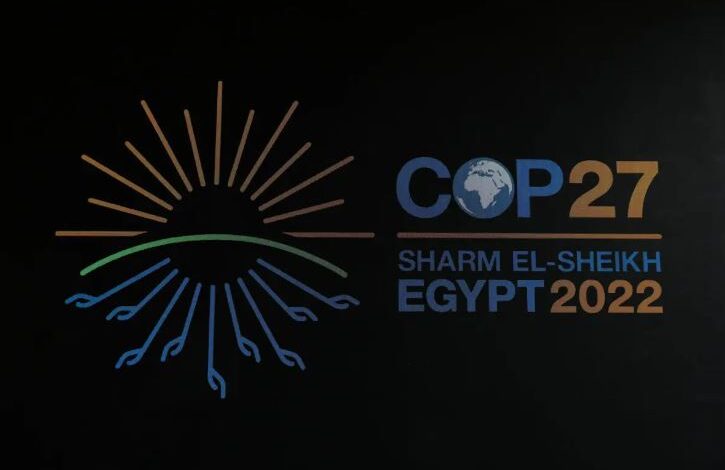Climate summit, COP27 argues on the most important agenda item

(sustainabilityenvironment.com) – A year ago, at COP26 in Glasgow, the problems began immediately, when more private jets landed in Scotland than promises of cuts in emissions. This year’s climate summit has done even worse. Delegates spent a whole night (and a piece in the morning) arguing – on a fundamental point – before COP27 officially began.
The impasse on the debated Loss & Damage
What have the representatives of the 196 countries that are members of the UNFCCC, the UN Framework Convention on Climate Change, been fighting over and running the COP diplomatic process? On the agenda of the COP27 in Sharm el-Sheikh. A point in particular: a sub-chapter of the climate finance dossier known as “Loss & Damage”.
The name is obscure but the concept it expresses is very simple: it is the money that the richest countries should pay to the most vulnerable countries to compensate for the impact of the climate crisis. These countries are particularly affected by global warming and have economies that often end up devastated by extreme climate events. All this despite the fact that they have contributed very little to the global rise in temperature, unlike the richer countries that are responsible for larger quotas than historical emissions.
In short, if there is a dossier that links together climate action, climate justice and recalibration of the ambition needed to respect Paris, it is precisely that of Loss & Damage. Which is why he’s been at the center of an arm fight for months.
On one side of the fence, the wealthier countries fear that saying yes to the creation of a Loss and Damage Finance Facility (the cash for these funds) and a mechanism to collect and redistribute them is tantamount to exposing Pandora’s box. So they have been holding back for years, even if these instruments (and the principle they embody) are provided for in the Paris agreement.
On the other side of the fence, the least developed countries are pressing to set them up and tackle the ecological transition on a par with all the others. So far they have received only (less) $100 billion per year in climate finance, largely for mitigation measures instead of adaptation. Nothing compared to the amount of money that would be needed.
Twenty-six (26) words
Well, what happened hours before COP27 started? On Saturday afternoon, the national delegates began to discuss the items on the agenda. This year, for the first time ever, the official document also included Loss & Damage. It was not a foregone conclusion, but rather the result of months and months of pressure from the most vulnerable countries. And already in this first meeting those who want to row against began to get busy.
Some delegates tried to leave out of the agenda the chapter of losses and damages. This would have given them the perfect excuse, for the next two weeks, to postpone the debate again. And at most to talk about it in the corridors informally. In no way would the final decision of the climate summit have so mentioned it. Given the resistance of most delegates, the battle has shifted to the exact wording of the item on the agenda. As in all meetings of international diplomacy, the single word counts for much and can direct the outcome of an entire negotiation process, especially when – as at COP27 – trust between the parties is at a minimum. In the end, the attempt failed, but it took many hours just to agree on this item of the agenda, the 8 f): “issues relating to the financing arrangements for responding to losses and damages [loss and damage] associated with the adverse effects of climate change, including a focus on addressing losses and damages“. So begins the COP27: with half a day to discuss 26 words on which, in theory, there was already agreement for months.
Read also COP27 in Egypt will succeed if it dissolves climate finance
Is that enough? No, warns Climate Action Network. “Financing agreements for losses and damages are now the order of the day, but the risk of finding oneself once again with an empty shell is real. The parameters adopted yesterday do not meet the demands of developing countries nor the needs of the most vulnerable countries“, writes the NGO in the ECO newsletter with which he daily comments on the work of the climate summit in Sharm el-Sheikh. “While the agenda requires a decision by 2024, that doesn’t mean you can relax. It is absolutely necessary to take a decision by the end of this COP on the establishment of a financial mechanism for losses and damages, already defining the basic parameters for this new instrument. The functions, governance and modalities of the disbursement of such funding can be finalised no later than, and ideally, well before the end of 2024, so that the instrument starts to function immediately afterwards“.





